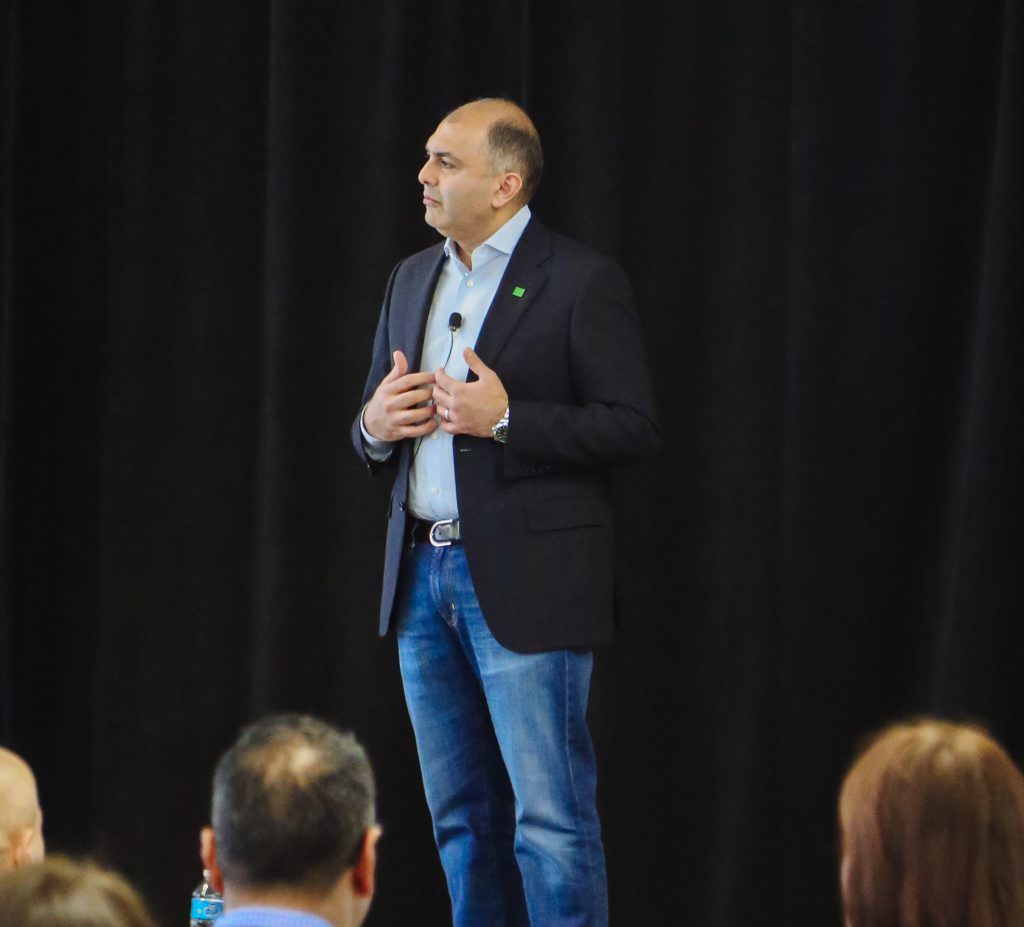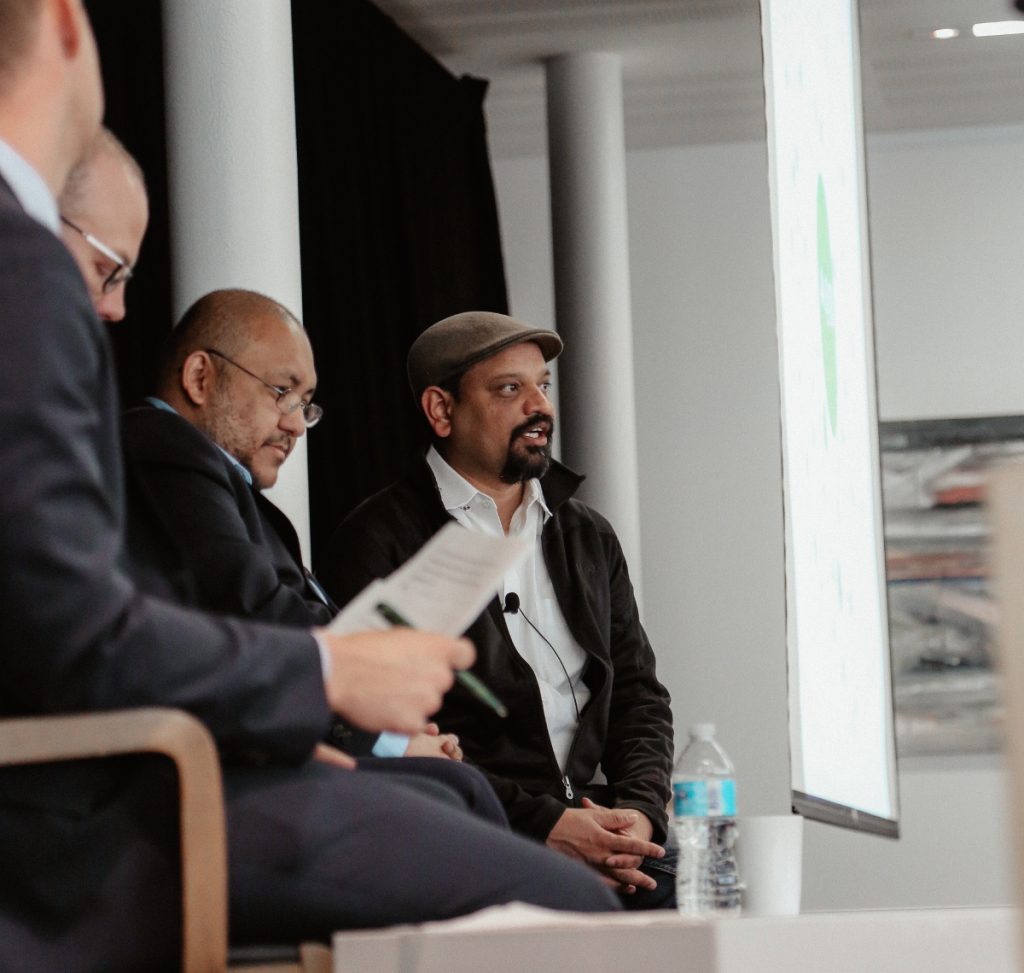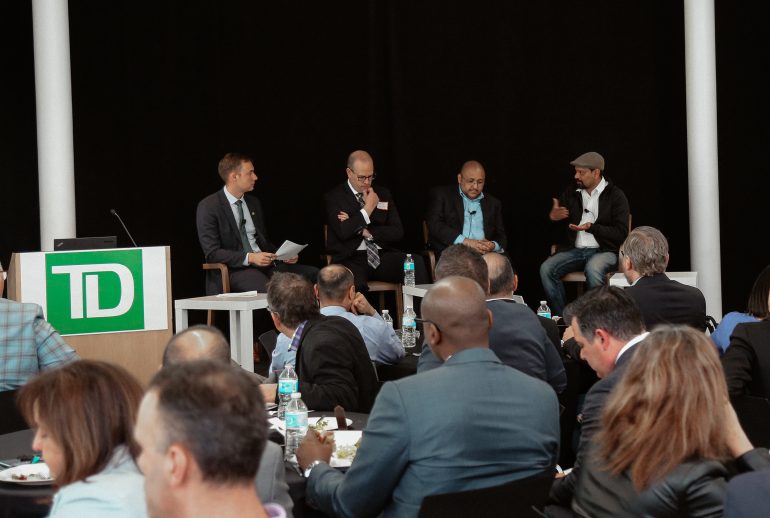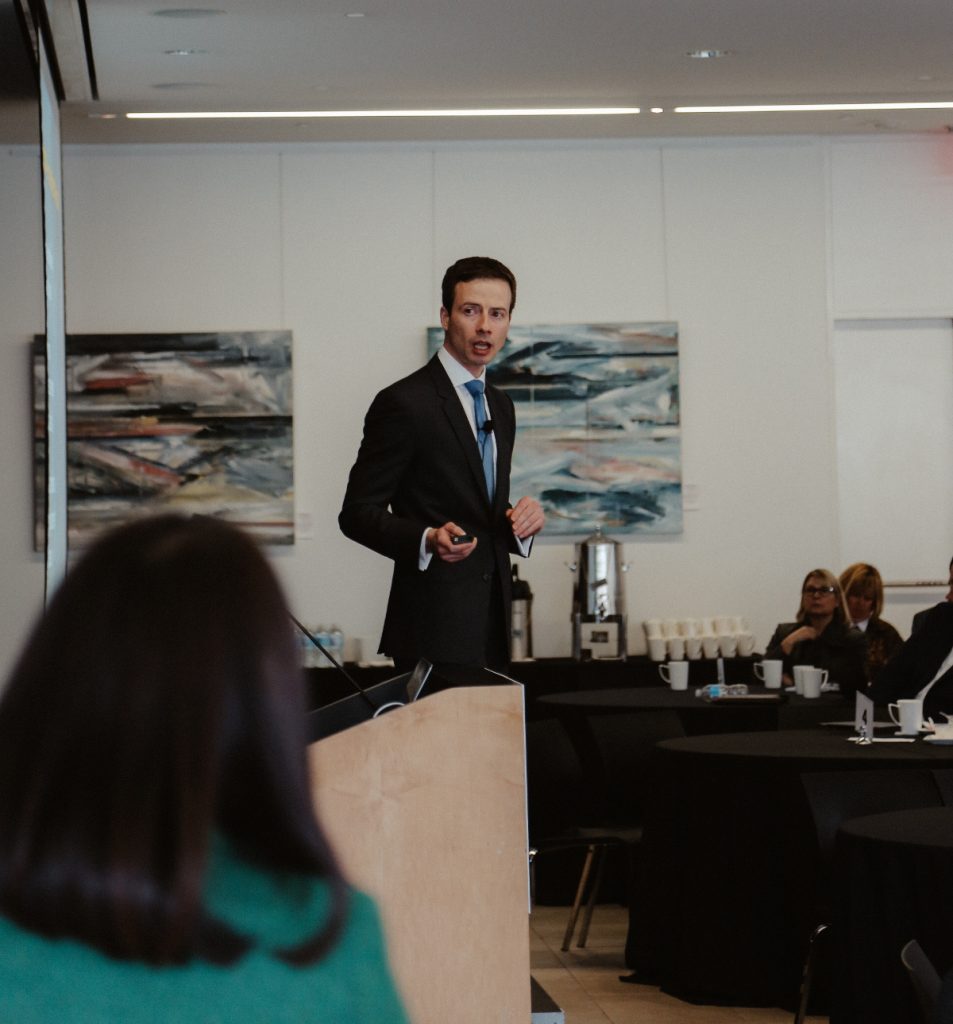Far from the typical startup and tech venues, historic St. James Cathedral Centre in Toronto proved a wonderful setting for TD Bank’s AI Innovation Day. Why? Ironically, because it promoted a different way of thinking.
I know what you’re thinking, and no, the event was not hosted in the nave of the church, but in the historic mansion-cum-conference centre building behind it.
Hearing the term “AI” might conjure up mental images of robots taking over humanity or perhaps that questionable Jude Law movie, but the Summit brought a different tune to the conversation: the power of humans and machines working together for the greater benefit of the human.
As a few speakers even suggested, artificial intelligence actually makes business more human.
The process of AI
The opening keynote, delivered by Nicolas Chapados of Element AI, looked at the history and uses of AI, deep learning, and machine learning. He described how these technologies are fundamentally changing business processes. Far from being fearful, though, Chapados comes with a message of hope, one echoed by Rizwan Khalfan, chief digital officer of TD Bank.
“The past 10 years we thought of business as mobile-first, but now we are moving into business that very well could be AI-first,” Khalfan said following the talks.
The trend of AI creating more human benefit starts with backend processes. Chapados gave the example of the trucking industry, a long-standing example of the massive displacement potential from AI. Instead of being fearful of lost jobs, Chapados encouraged the audience to not only look for gaps in the technology that can be filled by humans, but to rejoice in how AI technology can remove mundane or monotonous tasks from your plate.
“AI has the ability to get large trucks moving just fine on highways without a driver,” Chapados explained. “But where the technology is severely lacking is getting self-driving transport trucks through city roads, turning corners, or navigating through tighter spaces. This is where humans come in.”
He reasoned that drivers – traditionally away from their families for weeks or months at a time, driving one truck across the continent and back – could now go into a local control centre for their shift and “guide” multiple trucks in remote areas around the world. This not only offers more comfort and stability for the drivers, but can also nearly double asset (truck) utilization, says Chapados.
This sentiment was echoed both by Terry Hickey of IBM and the AI Expert Panel, all of whom talked about the positive employee and customer effects of integrating AI into your backend processes. Hickey talked about AI improving data security. The panel discussed how deep learning, at its core, is a repeatable model that will make humans more effective at their jobs as machines bring up insights and data in a couple of hours that humans could not process in a lifetime.
The culture of AI
The AI expert panel conversation, featuring Cameron Shuler of the Alberta Machine Intelligence Institute (AMII); Sunil Rawat, co-founder and CEO of Omniscience; and SriSatish Ambati, co-founder and CEO of H2O.ai, dove into the framework required for companies to be active in the AI space and how to bring a cultural shift into the organization.
Moderator Marc Chalifoux, VP of FinTech innovation at TD Bank US, kicked off the panel by asking what framework a large company (or anyone new to AI) might need in order to properly understand AI and its applications. Overwhelmingly, the panel talked about the need to frame AI as a business solutions provider.
“Are you going to get more revenues, more profit, higher profit margins, or better customer experiences?” asked Shuler, half-ironically.
“Break down your operations into micro-services,” chimed in Ambati. “and parse out the manual, routine, or boring tasks. It’s likely that AI can take over portions of that so humans can do more.”
This is often where the fear of displacement starts to set in for people on the other side of the coin — those currently working in jobs at risk of automation. I pressed Khalfan for his thoughts on this, and his response was opportunity-focused.
“Just like how many folks thought they’d lose their jobs from the mobile revolution, people fear that with AI. However, the reality is that there are so many other opportunities that become available because of AI.”

But how do you take the employees from fearful to empowered? Give them opportunities to try new things – a sentiment brought up by Ambati, and echoed by Khalfan later in our conversation.
Khalfan brought up the AI Day itself as one example; it was planned by junior people at the bank who wanted to learn more about the impact of AI in their world.
A “culture of experimentation,” as Ambati puts it, “supported from the top-down,” as Khalfan would later add, enabled those employees to bring their fears and concerns to the table and have an honest discussion about them.
This all leads to better outcomes for customers, as employees can now become the “experts” on new technologies and can share those insights with the outside world.
AI in the community
As companies grow, delivering on AI promises of great customer experiences at scale is a challenge. Luckily, two smart minds are on the case: Einstein and Watson.
Thanks to a partnership between IBM’s Watson AI technology and Salesforce’s Einstein deep learning technology, engaging with community at scale has never been easier.
The best part? It’s about technology making human lives better.
Hickey, during his keynote, talked about how Watson technology first came onto the scene when it famously beat Jeopardy champion Ken Jennings in 2011. From there, says Hickey, Watson’s abilities have grown into something far less trivial – healthcare.
“Watson now does image processing, analyzes millions of data points, and offers a diagnosis to doctors. Beyond stating the diagnosis, however, Watson also cites the articles that led to the conclusion and offers other resources that the doctor may want to look at,” explained Hickey.

In some trials, says Hickey, Watson even proved more accurate than doctors when it comes to diagnoses. However, this doesn’t mean that Watson will be taking over that infamous website we all look at when we have the sniffles. Hickey remained adamant that Watson – and AI in general – should empower people to do their jobs better, not replace people with technology.
The partnership with Salesforce is no different. Hickey showed a video clip of Salesforce CEO Marc Benioff announcing the partnership, and his excitement was not for how much more sales Watson and Einstein will bring the company. Benioff was excited because this partnership meant Salesforce could better serve customers whenever they need help.
Benioff was particularly excited about… the weather.
Salesforce is used by many insurance companies. With Watson’s integration into the Einstein platform, Benioff gave the example that Salesforce can automatically let customers know to park their car in the garage when a nasty hail storm is coming, reducing the risk of vehicle damage and insurance claims. Insurance companies are happy because they pay out less. Customers enjoy undamaged cars and have the added benefit of feeling cared for by their insurance companies.
Einstein and Watson keep on plugging, none the wiser to the human impact they are making. But Benioff and IBM CEO Ginni Rometty know all too well that the technology they built is making a positive impact for their customers and their customers’ customers.
The robots are coming
As the talks drew to a close, the panel turned to a much-talked about but often-misunderstood topic: the monetization of data.
“Data is a horizontal play,” said Ambati during the panel. “The most effective uses of your data and the best opportunities to monetize don’t come from your own industry.”
Ambati continued by giving an example of airlines. “They [airlines] can estimate and chart population growth in a city better than anyone,” he started, “but the most impactful uses of that data come from other industries [such as urban city planning]. Data cannot be in a silo.”
This opens up a lot of questions about the balance of user privacy versus finding the most impactful ways to use data, but the panel was not concerned, with Rawat stating that “convenience will trump total privacy, and customers will push it forward.”
AI might be less complex than it seems in some areas and more complex in others, but “the robots are coming,” as Hickey mentioned in his talk, and we would do well to not be afraid of them – they’re here to help.


